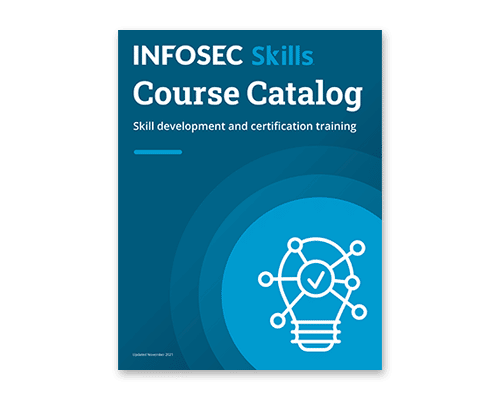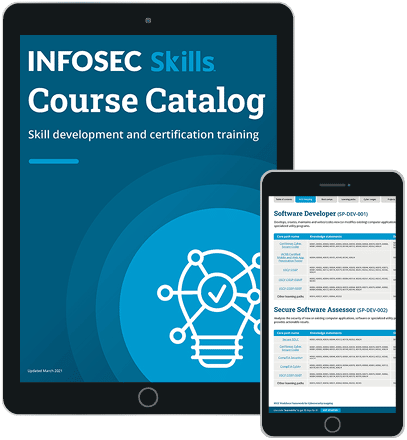How to learn Linux: Bring your passion, Jasmine Jackson will do the rest
When Jasmine Jackson first discovered penetration testing, she was passionate about it but didn’t have much experience. So in 2012, she started her blog, thefluffy007, formerly called Passion for Pen Testing.
“I was applying for information security jobs and I was automatically rejected because I didn't have the certificates, I didn't have the experience,” says Jackson. By completing capture-the-flag challenges (CTF) like picoCTF and Infosec’s CTF resources, she was able to prove her skills to her employers.
“I used that site as a portfolio so when I went on prospective job interviews, I would say ‘I don't have the certificates, but look at my website because I've been solving challenges and that shows my passion,’" says Jackson.
But it’s hard to find that passion if you’re a beginner trying to break down high-level content, which is why Jackson designed her new Infosec Skills Linux Fundamentals courses to appeal to the absolute beginner wondering how to learn Linux from scratch.
Creating a Linux foundation training
“When I was starting out in the field, I would read blogs and some of them were very high level and it just turned me off,” says Jackson. “I try to put my courses in everyday language and use examples so that students can relate to and retain information.”
It’s easier to find passion when you’re processing information through your preferred learning style. Jackson made sure her Linux foundation training used a combination of visual, audio and kinesthetic teaching strategies to appeal to multiple learning styles.
Her Linux training courses have videos to learn the concepts, labs to put those concepts into practice and quizzes to reinforce what you’ve learned.
“I try to meet people where they are and then try to add different flavors for the different learning styles."
Linux Fundamentals — Get Started
Why learn Linux?
Because Linux is used so widely — from phones to IoT devices — it’s an essential skill for those wanting to get into information security.
“Linux was used in space. Linux was used in Hollywood. The movie Titanic was stored on Linux servers. So you use Linux every day. For information security, in particular, you're going to encounter Linux a lot,” says Jackson. “This course is a good primer to give you the lay of the land of, if you have a Linux machine, what are some of the things you should look for? What are some of the things you should do?”
While the three main operating systems are Linux, macOS and Windows, as time has gone on Windows and Linux are becoming more intertwined, says Jackson.
“As the years have gone on, they're merging into one operating system. In Windows, they have certain functionality where you can bring in Linux components, and Linux is doing the same with bringing in Windows components.”
Jackson expects that this trend will continue, though Linux will remain open source.
“I don't see them turning into a proprietary company. That goes against their principles. So they're still going to be open source, but moreso merging with Windows. I can see more of that happening and possibly a collaboration of one operating system.”
This makes it even more critical to learn Linux. It’s especially important if you want to be a penetration tester, security analyst or incident responder.
Moving beyond Linux foundations
Having an open mind and a willingness to learn is going to help you in cybersecurity because it’s a field in constant flux.
“With information security, this field is always changing, and you're always learning,” says Jackson, but don’t let that stop you from getting started. Some skills you already have may transfer to cybersecurity, and that foundation will help propel you throughout your career.

Get your free course catalog
“The terminology, the regulatory things might be different, but the foundation is always there,” says Jackson.
She also encourages those from diverse backgrounds to consider entering the field and adding their unique perspectives
“You're going to have people from different perspectives, different walks of life, people who have not majored or will not major in computer science, but will provide content that is needed for this field."
The unifying theme is passion, Jackson says.
“That's why I originally named my site ‘Passion for Pen Testing,’ because you need that passion. If you have that passion and that thirst for knowledge, that will propel you so far into this field because you're always learning."






